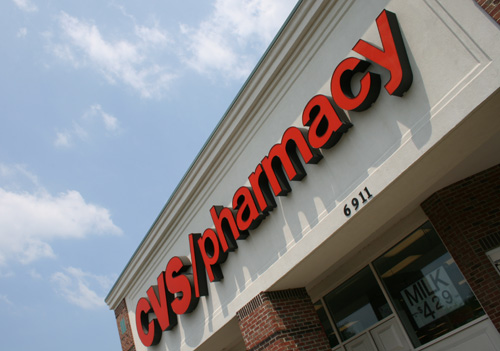Subscriber Benefit
As a subscriber you can listen to articles at work, in the car, or while you work out. Subscribe NowThe Justice Department on Wednesday accused CVS Pharmacy of incentivizing pharmacists to fill illegal opioid prescriptions for more than a decade, a practice that fueled the nation’s opioid crisis.
The complaint, filed in Providence, Rhode Island, where CVS is headquartered, alleges that the country’s largest retail pharmacy violated the False Claims Act and Controlled Substances Act by filling prescriptions for controlled substances that lacked legitimate medical purpose or were not valid, including prescriptions for “dangerous and excessive quantities of opioids.”
A flood of litigation has resulted in more than $50 billion in settlements with state and local governments, among others—money meant to curb a drug overdose crisis killing tens of thousands in the United States each year.
In the case of CVS, the complaint alleged that it used corporate-mandated performance metrics, compensation incentives and staffing policies that pressured pharmacists to “fill prescriptions as quickly as possible, without assessing their legitimacy.” These conditions made it impossible for CVS pharmacists to comply with their legal obligations to determine the validity of opioid prescriptions, the complaint said.
Pharmacy employees alleged that CVS was a “soul crushing” place to work because it was impossible to meet the company’s expectations while performing their jobs safely. According to the complaint, one CVS Pharmacy employee warned the company in writing that it had “concocted an assembly-line style of medication preparation” and felt they were being “rushed to fulfill an order like McDonald’s.” The complaint added: “CVS repeatedly ignored the increasingly impassioned complaints from pharmacists that their pharmacies were dangerously understaffed.”
In response to The Post, CVS spokesperson Kara Page said the company has cooperated with the Justice Department’s investigation for more than four years and strongly disagrees with the allegations and “false narratives” outlined in Wednesday’s complaint.
“We will defend ourselves vigorously against this misguided federal lawsuit, which follows on the heels of years of litigation over these issues by state and local governments—claims that already have been largely resolved by a global agreement with the participating state Attorneys General,” Page said in a statement.
Thousands of lawsuits have been filed against opioid makers, drug distributors, pharmacy chains and pharmacy benefit managers regarding their alleged roles in the opioid crisis. Last week, business consulting giant McKinsey & Company agreed to pay $650 million to end a criminal probe into its role in bolstering sales of addictive pain pills, including the blockbuster opioid OxyContin.
Separately, Rite Aid in July agreed to pay $7.5 million to settle similar Justice Department claims that the pharmacy chain filled unnecessary opioid prescriptions, while OptumRX, a prescription drug benefit provider, reached a $20 million settlement with the Justice Department in June after being accused of filling illicit opioid prescriptions.
Please enable JavaScript to view this content.


What’s worse: an opiate addict using a fake prescription to get a safe pill; an opiate addict buying street heroin/fentanyl; or an opiate addict whose skin is crawling and will do ANYTHING to get their fix? No person who isn’t already addicted is going to the trouble of getting a fake prescription. And I’d rather them take a controlled dose of a pharmaceutical than inject heroin that was paid for by desperate theft.
In general, the way in which the government tries to enforce drug laws is problematic. They go after easy pickings first, which doesn’t really do anything for addicts other push them into riskier & objectively more harmful behavior that the government has a much, much harder time stopping. It’s not like there is any way to stop China & other adversaries from getting illicit opiates into the US at this point: doses are too small, densely packed, and hard to detect.
By making it harder for addicts to get their fix from legitimate pills, the US government is guaranteeing that its adversaries will fill the demand in a way that is the most harmful to everyday Americans and addicts alike.